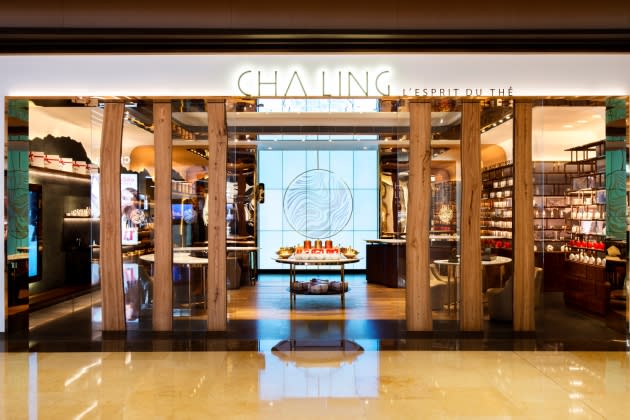LVMH-owned Cha Ling Halts Single Brand Retail Operations in China

SHANGHAI — LVMH Moët Hennessy-owned Cha Ling is the latest skin care brand to close its brick-and-mortar operations in the China market after COVID-19-related disruptions.
Founded in 2016, Cha Ling is a luxury skin care brand based on pu’er tea culled from China’s Yunnan Province and developed into formulations in France.
More from WWD
After launching at Le Bon Marché in 2016, Cha Ling expanded to Hong Kong and mainland China in 2017. In the following years, Cha Ling opened three independent stores in Chinese shopping malls, including Shanghai HKRI Taikoo Hui, Shanghai IFC, and Hangzhou’s MixC Mall.
According to Dianping, the Chinese version of Yelp, Cha Ling’s Pudong and Hangzhou stores have closed in recent years. The brand announced the closure of the HKRI Taikoo Hui store this June as the city emerged from a two-month lockdown. The store closure was aimed at “optimizing the brand’s retail strategy,” according to Cha Ling’s official Wechat account.
After ceasing independent stores’ operations, Cha Ling closed its Wechat Mini Program store, but the brand still operates an official Tmall store.
Cha Ling products can also be found in more than 310 Sephora stores in 87 Chinese cities. According to the LVMH-owned beauty retailer, sales at Sephora retail channels reached over 100 million renminbi, or $14 million, in the three years ending July.
Under Sephora, Cha Ling launched the Beau-Tea Class, a skin care workshop based on traditional acupressure massages and detoxification routines.
Cha Ling products are also featured in spas at five-star hotels, including Shanghai’s Peninsula Hotel, The Middle House Shanghai and Beijing’s Puxuan Hotel & Spa.
Cha Ling was founded by Laurent Boillot, who was Guerlain’s chief executive officer and is currently the chief executive officer of Maison Hennessy.
During a trip to Yunnan, Boillot met German ecologist Josef Margraf, who, with his wife, former journalist Minguo Li, was working on restoring the local biodiversity system.
After Margraf died in 2010, Boillot set on incubating the Cha Ling brand, which would carry on Margraf’s mission of reviving the natural ecosystem in Yunnan. A portion of Cha Ling’s profit goes to the Tea Garden project, which will continue to contribute to the reforestation and planting of tea trees in the Pu’er region of Yunnan.
This November, Cha Ling was showcased at the Sephora booth during the fifth edition of the CIIE fair. “We will continue to interact with Chinese consumers and develop more innovative products that cater to the local needs and to provide Chinese consumers with luxurious skin care experiences as well as genuinely memorable services,” Angela Shum, brand general manager of Cha Ling Greater China, said at the fair.
Cha Ling is not the first brand aimed at combining traditional Asian ingredients with Western skin care formulations.
In 2012, Estée Lauder launched Osiao, a premium skin care brand developed for the Chinese market. In 2019, Procter & Gamble set out to revive Oriental Therapy, a premium Chinese herbal medicine-inspired skin care brand initially launched in 2013.
This November, L’Oréal unveiled a K-beauty brand called Shihyo. The luxury skin care brand is infused with 24 herbal ingredients and combines fermented rice water and ginseng water.
